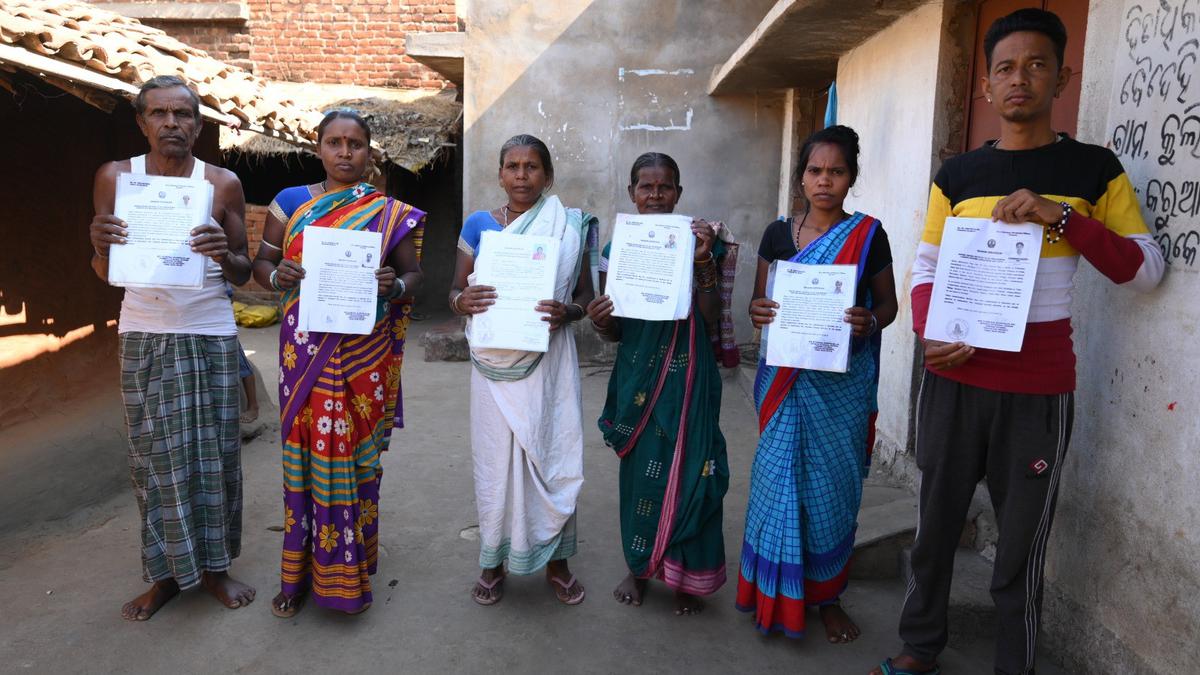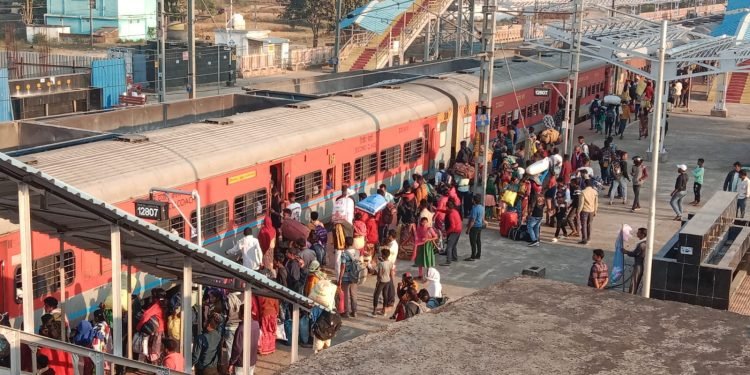Sambalpur (Odisha): The growing impact of climate change on agriculture is transforming numerous farmers in Western Odisha into migrant laborers. With declining agricultural productivity, the annual income of farmers has plummeted by nearly 39%, now averaging less than ₹30,000. This dire situation has been highlighted in a study by the Centre of Excellence for Regional Development and Tribal Studies at Sambalpur University.
The study focused on nine blocks affected by migration: Padampur, Paikamal, Jharbandh, Gaisilet, Bijepur, Khaprakhol, Patnagarh, Belpada, Muribahal, and Turekela. According to Professor Arun Acharya, nodal officer of the research, the report emphasizes the severe impact of changing climatic conditions in these areas.
Alarming Climate Trends
State government data reveals that over the last nine years (2014–2023), the number of dry days has increased from 270 to 280 annually, while average annual rainfall has decreased significantly. For instance, annual rainfall was recorded at 1412 mm in 2014 but dropped to 1193 mm in 2023. As a result, some parts of the region have already been declared partially or fully drought-affected.

Farmers Share Their Struggles
A 75-year-old farmer quoted in the report lamented the loss of consistent rainfall patterns, which previously ensured 5–7 days of heavy, steady rain during the monsoon. Today, droughts are frequent, and rainfall has become sporadic, leaving the soil infertile and agricultural output dwindling.
During the study, 32.5% of respondents reported experiencing prolonged drought conditions, while 63% noted partial droughts. Furthermore, 89.5% stated that their livelihoods were affected, with 2% reporting health complications linked to climate change.
Rising Migration and Displacement
As agricultural viability declines, temporary migration is rapidly becoming permanent for many. A staggering 2.4% of the population has already been displaced due to climate-related challenges. The study highlights how reduced rainfall and soil fertility force families to migrate, often becoming victims of exploitative labor practices and illegal human trafficking.
Particularly alarming is the toll on women and children, who face increased vulnerability due to food scarcity and family instability. The report underscores how climate-induced migration not only impacts individual lives but also perpetuates socio-economic inequalities in these rural communities.
Call for Action
This report is a wake-up call for urgent intervention. Addressing climate change’s adverse effects on agriculture is imperative to mitigate migration, ensure food security, and improve the livelihoods of farmers. Without strategic measures, the cycle of poverty, displacement, and exploitation will persist, jeopardizing the future of rural Odisha.
Report: Aswini Kumar Darjee






